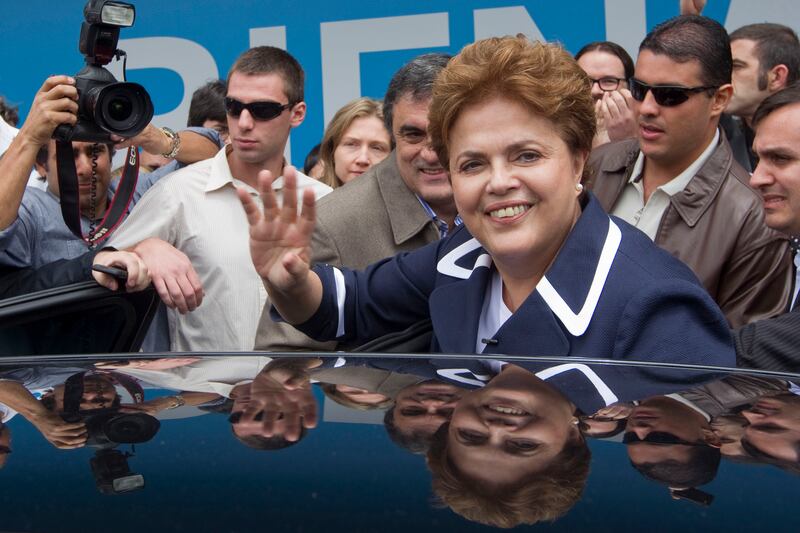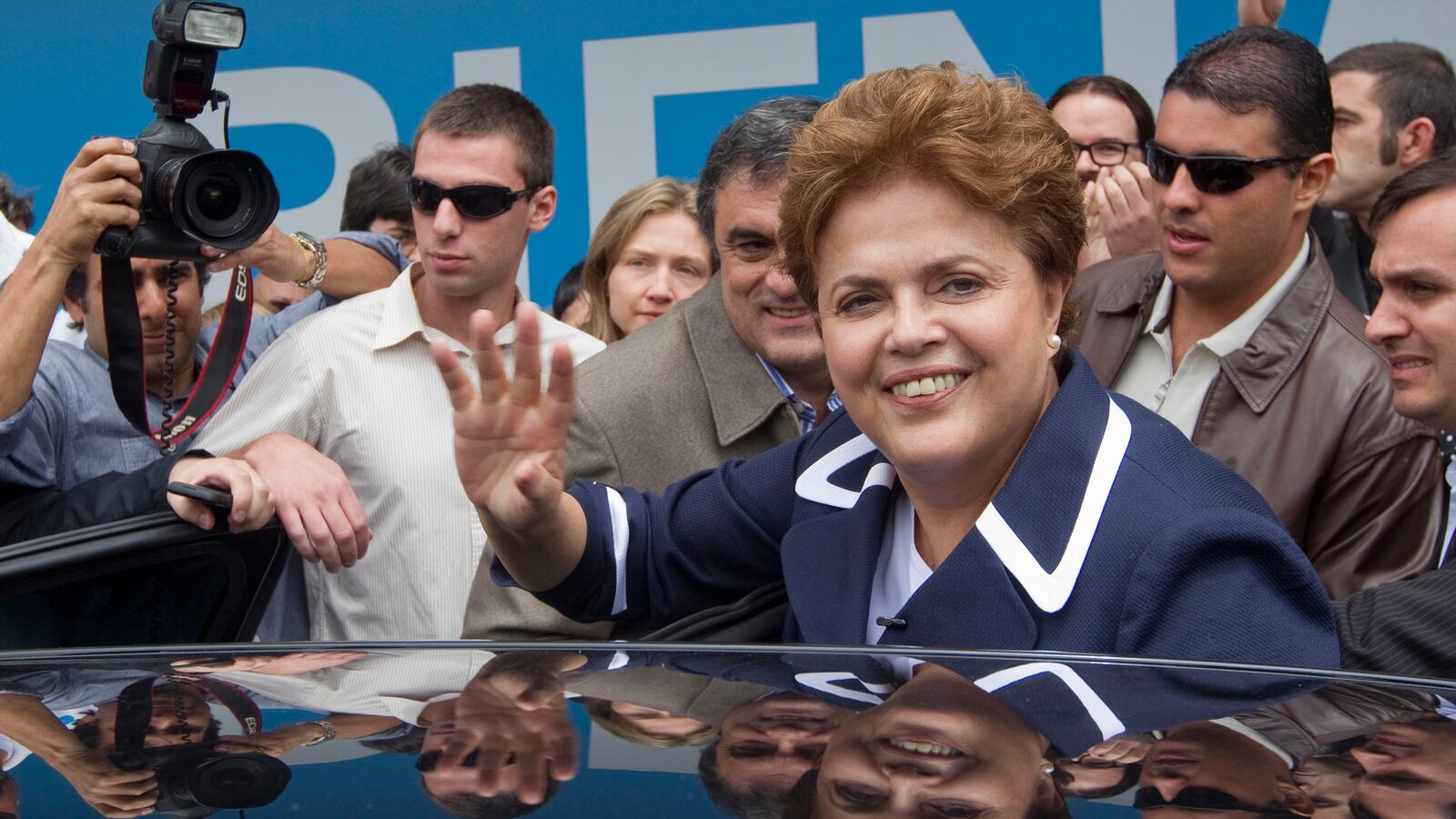For anyone paying attention to Brazil lately, the rolling street protests that have inflamed the country—shutting down city centers, mobilizing riot police, and sending political leaders into a defensive crouch—must seem bewildering.

Brazil, after all, has been on a roll. Here was Latin America's emerging titan, not just the world's eighth-largest economy, but a rules-based democracy hailed for its success in combining the animal spirits of the free market with sweeping social programs for the neediest. Foreign investors are streaming in and contractors breaking ground on lavish public-works projects to host primetime global events, including the 2014 World Cup and the 2016 Olympic Games.
God may not be Brazilian, as the natives like to tell it, but Pope Francis was on his way, having chosen Rio de Janeiro for his first major international tour—during International Catholic Youth Day—next month.
So why did a smallish-seeming gripe over a modest hike in bus fares erupt into a public conflagration, sending 250,000 people into the city squares and boulevards of São Paulo, Rio de Janeiro, Brasília, and a dozen other cities? From a utopian call for free public transportation for all, the so-called Free Pass Movement has mushroomed into the most formidable political movement in 20 years.
Breaking a conspicuous official silence over the uprising, President Dilma Rousseff yesterday hailed the "grandeur of the demonstrations" as a display of "the energy of our democracy." In a carefully scripted speech, that seemed partly an attempt at political damage control, she added: "The voices of the streets must be heard. They, clearly, transcend the mechanisms of traditional institutions, political parties, unions, and the media."
Brazil hasn´t seen a civic revolt of this magnitude in years. In 1992, a young firebrand president was caught out in a massive influence-peddling scheme, and brazenly called for "his people" to rally behind him. Instead, Brazilian youths daubed their faces in the national colors of green and yellow, or funeral black, and demanded his ouster. Fernando Collor de Mello was impeached on corruption charges and resigned in disgrace.
And now, in another show of force, the protesters were back, marching night after night in a national display of anger, but also of strength that had little to do with ideological labels or traditional partisan politics. More than a free ride, the student-led Free Pass Movement—spearheaded mainly by privileged and middle-class youths—demanded a reset of national priorities as stirring as it was spontaneous.
The fact that the protests have produced a half-dozen talking points but no clear political leadership or clearly defined policy goals has Brazilian social analysts scratching their heads and put nervous elected officials on notice. The demonstrators have presented a litany of complaints, ranging from calls to invest in the flawed public schools and hospitals to demanding that corrupt politicians be thrown in jail. "We would gladly swap our soccer for your educational system," read one placard at the Brazil vs. Japan Confederations Cup opening match last Saturday.
Yesterday, while most protesters were peaceful, groups of vandals attacked banks and storefronts, and also hurled stones at government buildings, such as the Legislative Assembly in Rio. Tellingly, one crowd in São Paulo burned in effigy both city mayor Fernando Haddad, of the ruling left-wing Workers Party, and his chief rival, governor Geraldo Alckmin, from the opposition Social Democratic Party.
Whether the Rousseff administration—or any of Brazil's familiar political leaders—can harness the anger or translate it into backing for a coherent legislative agenda remains to be seen. In recent weeks, criticism has soared over Brasilia's handling of economic policy as economic growth has stalled out, inflation risen, and the Brazilian real tumbled sharply against the dollar.
The rating agency Standard & Poor's recently downgraded Brazil's credit standing, putting the country's debt on the last tier (BBB-) below junk-bond status. Barclay's Bank and Japan's Nomura also joined the Brazil bears, lowering their outlook for Brazilian economic growth to a lackluster 2.5 percent and raising the specter that Brazil could become the first BRIC—the acronym for super emerging-market nations Brazil, Russia, India, and China—to lose investment-grade status.
"What's clear is that the dissatisfaction in Brazil runs much deeper than anyone had imagined," says sociologist Bolivar Lamounier, of the political-analysis consultancy Augurium. "If the government was as popular as the polls have shown, we wouldn't have massive crowds in the streets."
Rousseff was recently jeered at the opening match of the Confederation Cup soccer match in Brasília, and has seen approval ratings slip from 65 percent earlier this year to 57 percent this month, according to Datafolha.
And yet some Brazil watchers downplayed the damage to Rousseff's government "despite the unprecedented size of the protest movement, yesterday's events should not be interpreted as evidence that Rousseff is in imminent trouble politically, or that her chances of winning reelection are now in much greater jeopardy," said Christopher Garman, emerging-market analyst for the Eurasia Group.
All eyes are on October 2014, when Rousseff is up for reelection. Tellingly, before Rousseff addressed the nation yesterday, she flew to São Paulo for a three-hour, closed-door meeting with her political mentor, the ultra-popular former president Luiz Inácio Lula da Silva.
It's not just Rousseff who is feeling insecure. Seven Brazilian cities have announced they were rolling back fare hikes in Brazil. Wherever the street protests are going, they have already made their voices heard.






